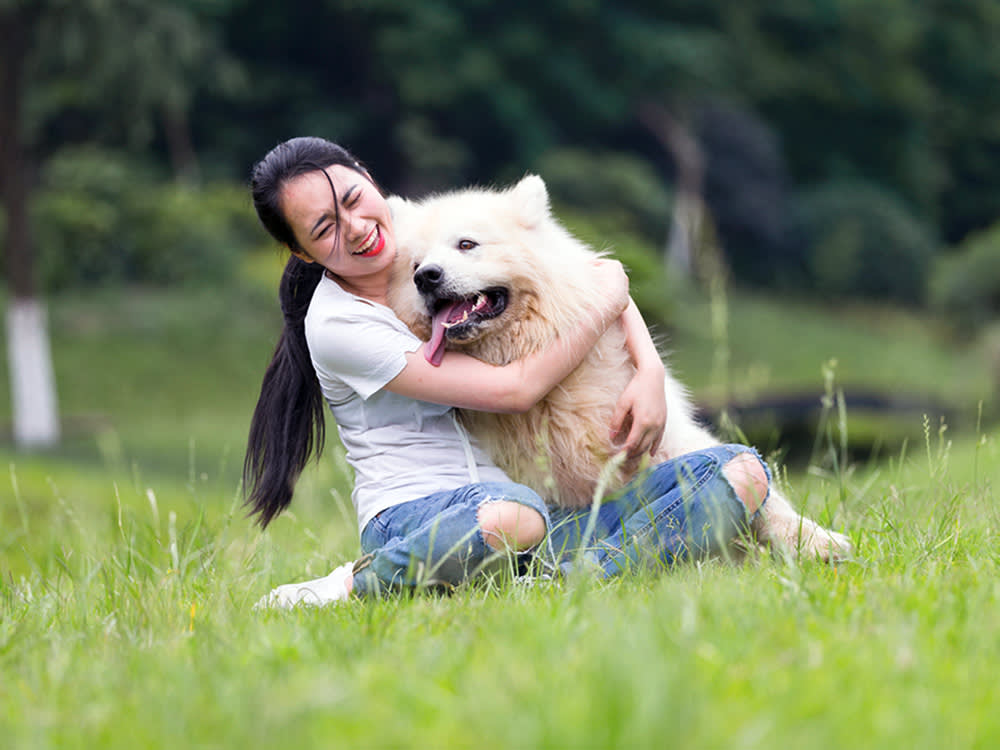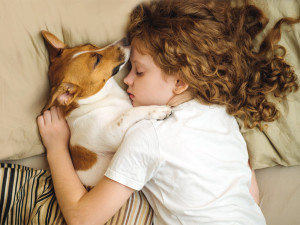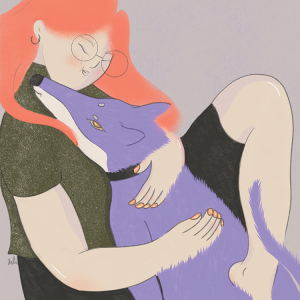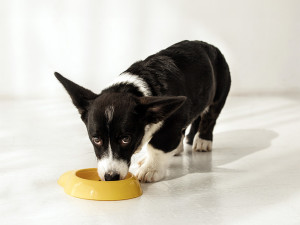Playing with Dogs Reduces Stress and Increases Concentration, New Study Finds
Having trouble chilling out or focusing? Maybe it’s time to get a dog

Share Article
Dogs make pretty much everything better. It doesn’t take science to figure that out. But sometimes it’s nice when the experts use their fancy equipment to get to the bottom of why something’s true – and prove it once and for all. So, in news that surprises absolutely no dog lover, researchers have found that spending time with dogs has real, positive effects on your brain. Just an hour with a pup can reduce stress, improve concentration, and strengthen memory and creative thinking.
The study
The study, published in PLOS Oneopens in new tab, was small, with 30 adults and one dog – the lead researcher’s own four-year-old Poodle – participating. Together, the humans and pup did eight tasks: meeting, play, feeding, massage, grooming, hugging, walking and photography. Meeting and walking were always the first and last activities, respectively, but the rest happened in random order.

Get (totally free) deals for food, treats, accessories, tech and way more pet parenting must-haves.
Researchers wanted the results to be representative of time spent with a domesticated companion dog rather than a service or working dog. “These activities were primarily selected to prioritise direct interactions with the dog, encompassing regular activities that people typically engage in with their canine companions,” wrote the study’s lead author, Onyoo Yoo.
During each activity, the brain waves of the participants were measured by an electroencephalogram (EEG), a method that uses electrodes placed on the humans’ scalps to measure brain electrical activity. The participants also filled out a questionnaire after each activity that asked questions about their mood and stress level.
The findings
The questionnaire revealed the obvious: dogs are great. During all time spent with the pup, the participants reported feeling “significantly lower fatigue and depression”, wrote Yoo. Stress was also lowered in all the activities. Walking the dog created the greatest feelings of comfort, and massaging the dog created the greatest feelings of relaxation.
Most excitingly, the EEG backed the self-reported emotions up. Playing and walking with the dog increased alpha waves in parts of the prefrontal and frontal lobe. “Previous studies have reported that increased alpha power reflects relaxation and emotional stability and is associated with improved memory and reduced mental stress,” wrote Yoo.
Relative fast alpha (RFA) waves also increased during playtime, and this “signifies an attention concentration in a relaxed condition”. An increase in RFA is associated with creative thinking and learning ability.
During grooming and massage, beta waves increased. Beta waves are similarly associated with concentration and alertness. The brain activity “increased as the intensity of contact with the animal increased”, wrote Yoo.
The findings are similar to those of a previous studyopens in new tab, wrote Yoo, which found that alpha waves increase during horseback riding exercise therapy. The study is also supported by previous research which has shown that time with dogs increases oxytocinopens in new tab (the bonding “love hormone”) levels and decreases cortisolopens in new tab (a hormone related to stress) levels. Basically, the science is clear: hanging out with a dog is good for you. You probably already knew that – but it’s nice to be proven right.

Sio Hornbuckle
Sio Hornbuckle is a writer living in New York City with their cat, Toni Collette.
Related articles
![Two men look lovingly into each others' eyes while cradling a white dog]()
Getting a Puppy Is a Bigger Commitment Than Marriage, Brits Say
So-called ‘milestones’ are shifting these days. Is getting a dog the new getting hitched?
![Sweet curly girl and jack russell dog is sleeping in night.]()
Dogs Improve the Sleep Habits of Children With Autism, New Study Finds
New research shows that service dogs help autistic kids sleep better and longer
![Illustration of a woman hugging a dog]()
Is That... Stress Your Dog Smells?
A study finds that your pup can tell – er, smell – when you’ve been doom-scrolling
How to Help Your Dog Be Just a Little Less Needy
You love that your dog is your shadow, but maybe not when you’re on a Zoom call
![black and white Corgi puppy eating out of a yellow dog bowl]()
Could Your Dog’s Diet Be Changing Their Behaviour?
It turns out the saying ‘you are what you eat’ isn’t just for humans





